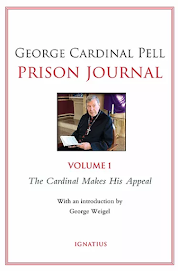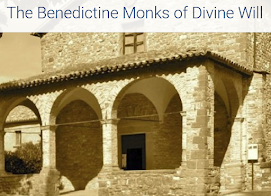|
One thing I like about The Galli Report is the
readers. When any of you disagree with me, you do it in a way that is pointed, yes, but civil and rational. Hat tip
to Sue I., David O., and Michael B. for arguing with me and/or pointing me to other articles about the Confederate
statues debate. Between these conversations and the book Strangers in Their Own Land: Anger and Mourning on the American Right by Arlie Russell
Hochschild (which I just finished), I realize I have been thinking about this issue as a member of Northern,
cosmopolitan culture. Like most people in this class, I tend to have little understanding or sympathy with Southern
culture. A longish quote from an essay on honor on The Art of Manliness will suggest partly what
I'm talking about by "Southern culture":
While honor in the North evolved during the 19th century away from the ideals of primal honor and towards a private, personal quality synonymous with "integrity," the South held onto the tenets of traditional honor for a much longer period of time. Unlike the Northern code of honor, which emphasized emotional restraint, moral piety, and economic success, the Southern honor code in many ways paralleled the medieval honor code of Europe—combining the reflexive, violent honor of primitive man with the public virtue and chivalry of knights. … Anthropologists and social psychologists believe this form of classical honor survived and thrived in the American South and died in the North because of cultural differences between their respective early settlers, as well as the North's and South's divergent economies.
How this relates to Robert E. Lee comes later in the essay:
Lee was the perfect example of the South's genteel honor code and what William Alexander Percy called the "broad-sword tradition": "a dedication to manly valor in battle; coolness under fire; sacrifice of self to succor and protect comrades, family, and country; magnamity; gracious manners; prudence in council; deference to ladies; and finally, stoic acceptance of what Providence has dictated." He had also served and greatly distinguished himself in the United States Army for 32 years, so much so, that as the Civil War loomed, Lincoln offered Lee command of the Union forces. Lee was torn; in the days before secession, he wrote, "I wish to live under no other government & there is no sacrifice I am not ready to make for the preservation of the Union save that of honor." Lee did not favor secession and wished for a peaceable solution instead; but his home state of Virginia seceded, and he was thus faced with the decision to remain loyal to the Union and take up arms against his people or break with the Union to fight against his former comrades. He chose the latter. Lee's wife (who privately sympathized with the Union cause) said this of her husband's decision: "[He] has wept tears of blood over this terrible war, but as a man of honor and a Virginian, he must follow the destiny of his State." In a traditional honor culture, loyalty to your honor group takes precedence over all other demands—even those of one's own conscience.
If you take the time to read the essay, or any of the
other essays in the
series, you'll see many sub-Christian aspects of honor culture. But loyalty—what is also called
faithfulness—is a virtue to be praised and, well, honored. To be sure, we sometimes find ourselves
loyal to a mistaken cause or person, but most of us still recognize the value of being faithful to friends and
family, even when it puts us in morally or socially awkward situations. That Lee, despite the turmoil within,
would remain loyal to Virginia—and the friends and family and nobler aspects of its
history—is something to admire, it seems to me.
This puts the Civil War in a more complex light. It
was certainly about slavery, but it was also about honor and, as I've read elsewhere, economics. Something so
cataclysmic is never about one thing. The systemic injustice and cruelty of slavery needed to be abolished, but a
realistic assessment of human motivation (not to mention Lincoln's "with malice toward none, with charity for all")
impels me to recall that the reasons people take up arms in a cause are always more complicated than we imagine.
That being said, I still agree with Andrew Bacevich's argument—though I'm no longer sure the
label "traitor" applies to Lee. Still, at the institution that represents our united nation, West Point, I don't know
that a statue of Lee, the leading general of the effort to break up the Union, should be displayed. How and where he
is honored elsewhere in the South, and for what reasons, I don't have much to say, lest I be rightly accused of being
a Northern supremacist. ….
| ||
Identity Politics, Swearing, and Pluralism …
"Mark Lilla Vs. Identity Politics": Though I lean in conservative directions, I like it when I
can agree with a staunch liberal like Mark Lilla, at least on this subject.
"Shocking figures: US academics find 'dramatic' growth of swearing
in books." In the "This is news?" department, it's always good to see scholars catch up with what the rest of us
have known intuitively for some time.
3 ABNY ["Already but not yet"] Social Realities Shaping North
American Missions: The New Testament church was birthed in the messiness of a religiously pluralistic society. Having just attended a conference where I heard remarkable stories of Christians reaching out to Muslims in America,
I thought this piece by Daniel Yang made a lot of sense.
| ||
Grace and peace,
| ||
| ||
Friday, September 1, 2017
Identity Politics, Swearing, and Pluralism …
Subscribe to:
Post Comments (Atom)























No comments:
Post a Comment